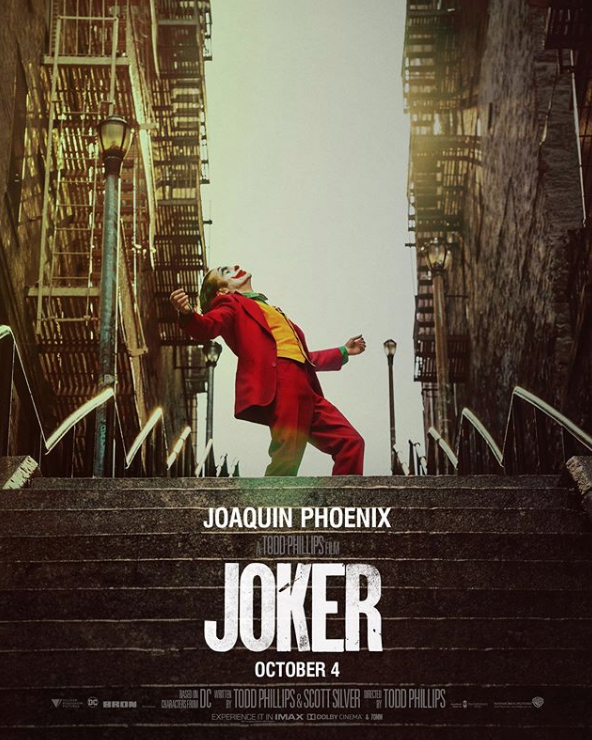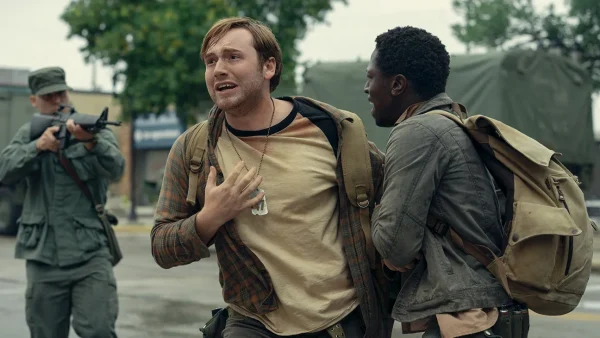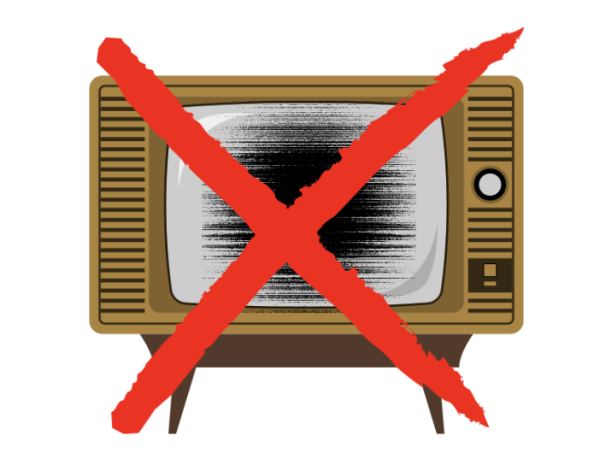‘Joker’ Review
October 27, 2019
*DISCLAIMER: THIS ARTICLE CONTAINS MINOR SPOILERS FOR THE 2019 FILM “JOKER”*
Despite the fact that the film has only been on screens for a short time, Todd Phillips’s “Joker” has been a hot topic of conversation for a while, consistently making headlines much prior to the film’s release. From spawning online terrorism threats mocking the 2012 “The Dark Knight Rises” shootings in Aurora, Colorado, to families of victims in the Aurora shootings successfully barring the film’s premiere from some select theatres, all the way down to official FBI-issues warnings about the movie’s premiere, “Joker” has spurred quite a bit of anxiety and anticipation in its wake. Add in the pressure on Todd Phillips to produce a more clear-cut “serious” film after directing the Hangover Trilogy, and the pressure on Joaquin Phoenix to live up to the late Heath Ledger’s legendary performance, and all the components for a very controversial movie are clearly in place. Thus, the question stands: does “Joker” have what it takes to prove worthy all the drama and controversy?
University Sophomore and Film and Screen studies major, Pratul Kalra, stated about the film, “The issue with ‘Joker’ as a character reference is the fact that Heath Ledger is difficult to live up to and the standards were very high. This movie was facing so much pressure before it was even released- everyone had unrealistic expectations, but the movie ended up not only very popular in the box office, but is critically acclaimed as well”.
At surface-level, the film can be most aptly described as a gritty “character study” of sorts, as for most of the film, we are introduced and acquainted with Arthur Fleck rather than his malevolent alter-ego, “The Joker”. The film does a magnificent job with primarily painting Fleck as the “anti-hero” – showing his struggles while trying to get by in the lower class, portraying the hardships that come hand-in-hand with severe mental illness and social anxiety, and exploring the turmoil that is family trauma. The Joker still remains as the cold, merciless killer that we see him as in many of the Batman movies, TV shows, and comics, but the film effectively sheds light upon the very seldom-discussed origin stories of Arthur Fleck, prior to the green hair and make-up. At some points during the film, the viewer may find themselves feeling sorrow for the murderous villain that they’re watching conduct evil schemes, and at other points, they may even be rooting for Fleck. It’s a sickening feeling to experience when paired with the sorrow that Fleck brings unto others, but the audience is left with no choice. They’re watching a man who is already broken lose the very few things that he has left. That does not excuse the film from plot holes and unnecessary plot devices, though – there are many points in the story that scream “filler” or “cliché”, and many loose ends in the story are never really tied up by the conclusion of the film. This can rightfully be excused as an artistic choice, as “leaving it to the viewer’s interpretation” is a very common choice in cinema these days, but the amount of conflict that is left unanswered in “Joker” gives off the feeling of screenwriters feeling unsure of where to lead those subplots.
The film also sparked many post-release debates in the field of mental health, with mental illness being a very commonly used plot device in movies with viciously evil characters. An example of this is, M. Night Shyamalan’s 2017 blockbuster “Split” depicted a schizophrenic man with the ability to climb walls and withstand shotgun blasts. Movie villains with mental illnesses are often viewed as a “copout” in cinema, and rightfully so. Painting characters with mental illness as inhuman beings with dangerous and downright supernatural abilities can very easily hinder progressive discussions on the topic of mental health. Many argued that this was the case in “Joker”, although Arthur Fleck does not exhibit any superpowers throughout the film, his cold-heartedness, brutality, and genuine instability can be directly linked to his mental illness and lack of necessary medication throughout the film. Many others, however, argue that this was an enlightened plot choice rather than a provocative one. Fleck’s medication prescription is halted on account of budget cuts in his city’s psychology department, and he is forced to live without them despite being tenuously more stable when using them. This plot choice can be argued as a statement on the treatment of the mentally ill in the lower class, and how quickly society is able to belittle and disregard their well-being and show concern in the well-being of higher-class people such as celebrities and icons. Be that as it may, “Joker” does suffer from many faults and inconsistencies. However, if there is one amnesty to this film’s controversy, it’s the lead clown Joaquin Phoenix himself.
University sophomore Film and Screen Studies major, Luke Petronella, stated “Todd Phillips portrays the infamous comic book character, The Joker, as a contemporary analysis of what drives the modern man to willingly choose evil. Joaquin Phoenix gives an intimate portrayal of not just a man gone mad, but of somebody who corrupts himself into a hypocritical and self absorbed wannabe criminal. It is also a meta narrative of what we choose to believe and the person we think we are and who we want to be”.
In the very first seconds of the film, we are introduced to Arthur Fleck struggling to “put on a happy face” for the day. He gazes into his mirror in full clown makeup with both fingers pulling either corner of his mouth into a smile, a single tear running down his cheek, smudging his blue face paint into a cartoonish teardrop. This is the first of many chilling juxtapositions that Joaquin Phoenix is able to present on-screen, and it makes for Fleck being a tragic and disturbed character, even when not in clown costume. This is shown most efficiently in Fleck’s most predominant medical condition throughout the film. Fleck suffers from a disorder that causes him to have uncontrollable fits of laughter when placed under stressful or dire situations. Phoenix brings this from plot conflict to pitiful turmoil as the relentlessness intensity of his constant laugh attacks in contrast to the agony and true horror in his eyes as he grins from ear-to-ear is downright heartbreaking. Phoenix impeccably emits every characteristic there can be in a man who has essentially nothing and is still losing the very little that he does have; a helpless and broken man living in a negligent and bitter world. The only time we are presented with an Arthur Fleck who isn’t constantly suppressed by the carelessness of others and his own anxiety is in Fleck’s imagination, and towards the finale of the film, as he slowly spirals into the mad villain “Joker”. By the end of Fleck’s transformation, Phoenix does a complete 180 in terms of character portrayal. Fleck’s anxieties evaporate, and during one of the final scenes that will be sure to linger in viewers’ minds long after leaving the theatres, Phoenix madly skips, jokes, and most of all, laughs his way through cold-blooded murder and carnage of a city in revolution. Phoenix shines here brighter than ever before, as we are finally at the conclusion of his character’s long, slow-spinning descent into madness. He acts with such malevolence during the final act of the film that it may be easy for many viewers to utterly forget why they felt pity for him in the first place, or choose to retract their pity as Fleck has simply regressed into a man of wickedness rather than informal justice. But that’s the entire point – we’re being told a supervillain story, not a superhero or anti-hero story. Most people know what Joker is fully capable of, and without Bruce Wayne around to be the one that’s there to prevent his cruel schemes, we’re trapped in an atmosphere of helplessness and peril. This is the exact atmosphere that “Joker” needed, and Joaquin Phoenix carries himself throughout this atmosphere absolutely flawlessly, being the subject of a character study in which a man who has lost it all ultimately breaks and turns against the society that has suppressed him for so long.
“Joker” has its conceptual highs and lows throughout the duration of the film. A movie with as much controversy surrounding it as this one had is sure to be ridiculed for its plot inconsistencies and nonessentials. While it is not to say that the plot is entirely a mess, the film is certainly carried by the performance of Joaquin Phoenix, an actor who is long overdue for his credit in Hollywood and the media. If moviegoers are able to look past the tumultuous drama that came with its release, then “Joker” just may be Phoenix’s key to recognition, and quite possibly his magnum opus.













